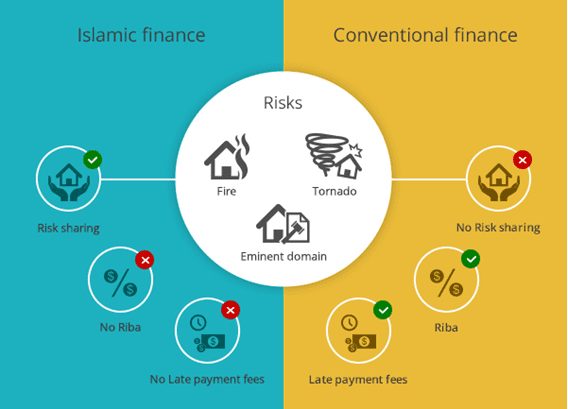Should Newlyweds Buy or Rent?

Congratulations, newlyweds! Starting a new life together requires lots of decisions to be made. Your family and friends may be asking about your future plans—are you going to purchase your first home together right after the wedding? It may seem like the next step after getting married. But is it the right step for you? Should you buy or rent as newlyweds? Each has its pros and cons and there are factors to consider. Let’s explore each so you can decide which is right for you.
To Rent or Buy as a Newlywed: Pros and Cons
There are various things to research before buying a house, so you and your spouse should gather all the pros and cons as you make a decision together. A big part of your decision will be based on finances. And knowing the financial mistakes to avoid as newlyweds can help when coming to a conclusion.
Renting: Pros and Cons for Newlyweds
If you’re considering renting, check out these pros and cons.
Pros of Newlyweds Renting a Home
- Fewer Upfront Costs. When you buy a house, you’ll may need to put down as much as 20% of the purchase price as an initial investment, depending on the type of mortgage you choose. Then factor in closing costs which can be anywhere from 3% to 5% of the purchase price. Renting, on the other hand, only requires a security deposit, typically equal to one or two times the monthly rent.
- More Time to Decide. Many young couples have not figured out exactly where they want to live together in the long term. When renting, you can explore the neighborhood together and assess if the location works for both of you before making the commitment of purchasing a house.
- Little to No Maintenance. As a tenant, your landlord is responsible for maintenance costs on the property. If something breaks, the bill goes to the landlord. Without having to worry about costly repairs, you and your spouse can focus on saving money for your future home.
- More Flexibility. Leases typically last for only one year, and some can even be for shorter-term periods. If life takes you somewhere else due to a career move or another life change, it’s possible for you and your spouse to move on without needing to think about selling a home.
- Save Money for Your Dream Home. It’s important that you bothunderstand and share your financial history to see if you are financially able to purchase a home. If you’re in a situation where it makes more sense to wait and pay off debt or save more money to put towards your dream home, renting allows you to do so.
Cons of Newlyweds Renting a Home
- It’s Not Yours. There’s something about taking pride in owning your own home. You may not also get that feeling of being a part of the community that homeownership may allow. Additionally, if the rental property appreciates and is sold, the gain isn’t yours but rather the landlord’s.
- Restrictions. If you want to get a pet, but your landlord doesn’t allow pets, you are restricted to not having that pet. The same goes for most changes you may want to do to your living situation, like painting a wall or adding new appliances.
- No Guarantees. Your landlord can sell the property and maybe the new owner doesn’t want to rent it out anymore. Then you’ll be left to find another place to live. Renting a home doesn’t allow you to live on your own terms.
Buying: Pros and Cons for Newlyweds
A home can be described as hope, dreams, security, family, freedom, and future. It’s a place you can call your own. Consider the pros and cons of purchasing a home as a newly married couple.
Pros of Newlyweds Buying a Home
- Freedom. You aren’t restricted to what you do with the space. Feel free to change carpets, install a new door, or change the heating system. It’s yours, so you don’t need permission from a landlord.
- Security and Consistency. No need to stress about the landlord selling the home or increasing the rent. When you own, it’s a place you can call your own and keep in the family for years to come.
- Financial Benefits. Making payments towards your home means you’re on your way to owning it in full. Meanwhile, paying rent to your landlord means your money is just going to your landlord. Plus, there are tax advantages you can benefit from when owning a home.
Cons of Newlyweds Buying a Home
- Various Costs. There are already many expenses you’ll encounter during the first year of marriage. When it comes to owning property, there’s the initial down payment, which is typically 20% of the purchase price. Then there’s a need to set aside funds for property taxes, moving in, and maintenance. Anything that breaks will be on you to fix.
- Stressful. The homebuying journey isn’t easy and neither are your first few months of married life. Would you want to add a new home to the mix as you figure out how to share life with your new spouse and combine your finances?
- Commitment. If you change your mind about the neighborhood, you bought a home in, you may have to wait for a while in order to sell the place or to look for a tenant. If you had the urge to travel for a few months together, you’d have to consider the cost of the home or maintaining it as a landlord.
4 Factors Newlyweds Should Consider When Buying a Home
Purchasing a home as newlyweds isn’t as easy as just packing up your belongings and putting them in a new home. There are many responsibilities and factors to consider. While you can look at a rent vs. buy calculator to make a decision, you’ll also want to consider a few factors.
1. Finances
A home is a big expense. As you’re navigating how to manage money as a newly married couple, where will a home fit into the plan? Have you discussed your financial goals? Maybe you have debt and want to pay that off first. Or you may not want surprise maintenance costs to arise and would rather have that taken care of by a landlord. And maybe your financial goals require you to save a bit more money before purchasing. In that case, you may find that renting for awhile makes sense.
On the other hand, buying may be the option for you if you’ve put the numbers together and found that you can afford the monthly payments and the other expenses that come along with owning a house.
2. Lifestyle
Consider which amenities are most important in your life. Many newlyweds enjoy having a pool or a gym on-site, which is more common in an apartment than in a single-family house. On the other hand, if you want your own outdoor space to host parties in the summer and grill or allow kids or pets to run around, a single-family home might suit your lifestyle better. Do you want to spend weekends caring for a lawn, which can be time consuming, or would you rather let someone else care for common space? Make a list and see which situation suits you best.
3. Future
When deciding whether to rent or to go ahead and buy your first home, your future comes into play. Would you still want to be in the area in the next few years? Will other career opportunities arise that will take you elsewhere? Do you want to start a family right away? These factors are important to consider. For example, your growing career could lead you to other locations or traveling around. And if you want to have kids soon, you’ll want to consider buying a place that’s big enough so you won’t need to upsize right away and one that will suit your needs for the long term.
4. Season
When are you getting married? You may not want to purchase right after the wedding. Consider the season and speak with a real estate agent to help you navigate the market as first-time homebuyers. They can guide you through the process of home buying and also let you know their tips for purchasing during the busier seasons.
The Bottom Line: Should You Buy a House Right After Getting Married?
Before making your decision on whether to rent or buy, take time to discuss the pros and cons of purchasing a home and also your lifestyle and financial situation. It’s best to have this conversation well before getting married. Then decide what is best for your situation. With this decision made, you can enjoy planning the wedding instead of worrying about your living situation.
Wondering how much you, as newlyweds, can afford to spend on a home? Get pre-qualified online today to obtain a more accurate affordability estimate.
Originally published in February 2022, updated November 2023.




